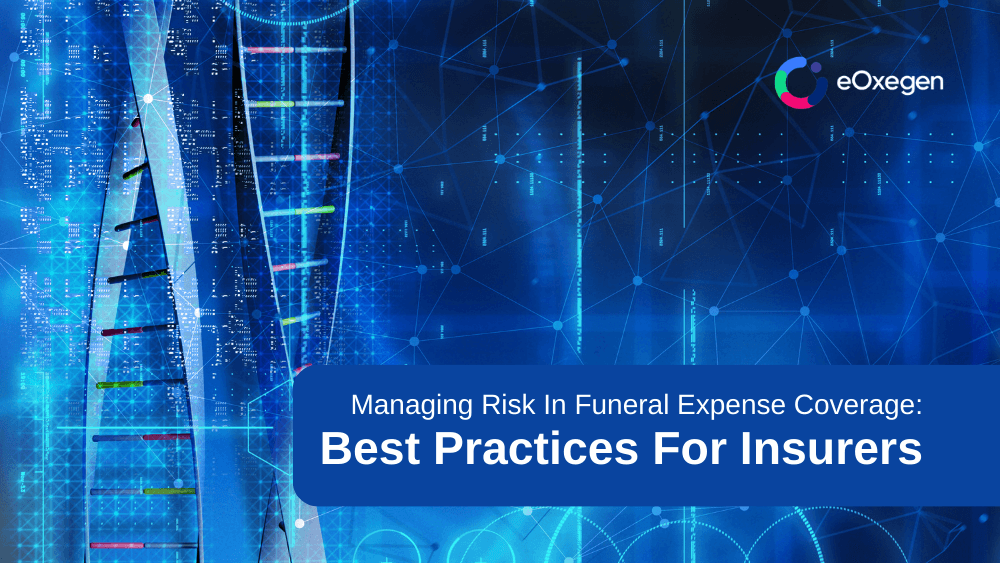Managing Risk In Funeral Expense Coverage: Best Practices For Insurers
8 Feb, 2024

In the realm of life insurance, the provision of funeral expense coverage stands as a compassionate pillar, offering solace and financial assistance to families grappling with the loss of a loved one. Yet, beneath the surface of this vital support system lies a complex landscape that demands meticulous attention from insurers. Effective risk management isn't just a requisite—it's the linchpin for responsibly and sustainably delivering funeral expense coverage.
Understanding the Landscape: Life Insurance Claim Investigation Services
Life insurance companies serve as pillars of support for families navigating the challenging aftermath of losing a loved one. In this role, maintaining the industry's integrity is paramount. This responsibility goes beyond just processing claims; it involves a commitment to thorough and reliable life insurance claim investigation services. These services act as the guardians of trust, ensuring that claims are handled accurately and ethically. By investing in robust investigation processes, insurers not only fulfill their financial obligations but also shield the sacred bond of trust shared between insurers and policyholders.
The Evolving Regulatory Landscape
The insurance industry operates within a dynamic regulatory landscape, shaped by ever-changing laws and standards. In response to this fluid environment, insurance underwriting software solutions have emerged as a cornerstone in achieving and maintaining compliance. These systems leverage sophisticated technology to streamline underwriting processes and align them with the latest regulatory requirements.
The Evolution of Life Insurance Claims Investigation Development
In recent years, a technological renaissance has reshaped the landscape of life insurance claims investigation. Insurers have embraced cutting-edge tools and systems that propel the industry into a new era of efficiency and accuracy. Artificial intelligence (AI) and data analytics stand as the vanguards of this transformation, enabling insurers to move beyond traditional approaches. These innovations not only streamline operations but also elevate the overall customer experience. By harnessing the power of technology, life insurance companies are not merely adapting to change; they are pioneering a future where claims investigation is synonymous with precision and speed.
Role of Insurance Claims Investigation System
At the core of managing risk in funeral expense coverage lies the indispensable role of an effective insurance claims investigation system. This system is the nerve center, orchestrating the delicate balance between swift claims processing and meticulous investigations. Automation becomes a trusted ally in this process, handling routine tasks with speed and accuracy. This, in turn, allows human investigators to focus their expertise on more intricate cases, where nuanced understanding and empathetic judgment are irreplaceable. In the symphony of claims processing, the insurance claims investigation system plays a crucial solo, ensuring not only the financial stability of insurers but also the confidence and peace of mind of grieving families.
Best Practices for Claims Processing System
Data Analytics for Early Detection
- Utilize advanced data analytics tools to analyze claims data for unusual patterns or inconsistencies
- Implement machine learning algorithms to identify potential fraud indicators.
- Set up real-time monitoring systems to detect anomalies and trigger alerts for further investigation.
Collaboration with Law Enforcement
- Establish strong partnerships with law enforcement agencies to share information and collaborate on investigations.
- Provide law enforcement with access to relevant data and analytics tools to facilitate efficient and thorough investigations.
- Regularly engage in joint training exercises and workshops to enhance collaboration and communication.
Continuous Training for Investigators
- Develop a comprehensive training program for claims investigators, focusing on both foundational skills and emerging trends in fraud.
- Provide regular updates on new fraud techniques and prevention strategies.
- Encourage participation in industry conferences and workshops to stay informed about the latest developments in fraud detection
Customer Education Initiatives
- Create educational materials, such as brochures or online resources, to inform policyholders about the claims investigation process.
- Clearly communicate the consequences of fraudulent activities, including legal actions and the impact on insurance premiums
- Foster a transparent and trustworthy relationship with policyholders to discourage fraudulent behavior.
Integration of Technology
- Implement modern technologies, such as artificial intelligence and machine learning, to automate routine tasks and enhance the efficiency of the claims processing system.
- Explore the use of blockchain technology for secure and transparent record-keeping, reducing the risk of data manipulation or fraud.
- Regularly update software and security protocols to protect against evolving cyber threats.
Data Security Measures
- Prioritize the security of sensitive claims data through encryption, access controls, and regular security audits.
- Establish protocols for secure data transmission and storage to mitigate the risk of data breaches.
- Train employees on data security best practices to prevent internal vulnerabilities.
Feedback Loops for Continuous Improvement
- Establish feedback mechanisms to gather insights from investigators, law enforcement, and other stakeholders.
- Use feedback to continuously improve the claims processing system, addressing weaknesses and adapting to new challenges.
- Foster a culture of continuous improvement and innovation within the claims processing team.
Conclusion
Managing risk in funeral expense coverage requires a multifaceted approach that combines technological innovation, robust investigation services, and a commitment to ethical practices. By adopting best practices in life insurance claim investigation services and leveraging advanced systems, insurers can not only protect their interests but also uphold the trust that policyholders place in them during challenging times. As the industry continues to evolve, embracing these practices will be essential for insurers looking to provide reliable and responsible funeral expense coverage.
Recent Articles
- How do Big Insurers Engage with the New-Age InsurTech Companies?
- Insurance Management System Integration: Maximizing Efficiency and Performance
- Will Blockchain Technology Reshape the Insurance Market?
- The Future of Health Insurance: Predictive Analytics and AI
- Buy or Build Insurance Software? A Game-Changing Question in Insurance Industry